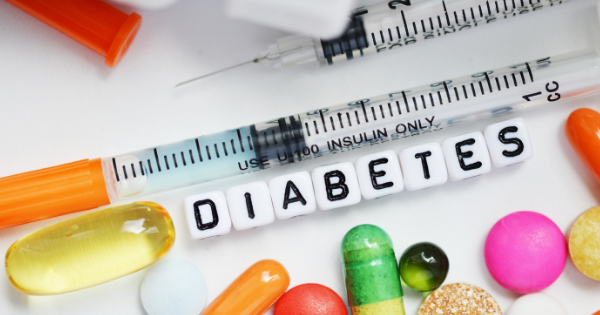According to research, at least four out of five parents cannot recognise the risks of diabetes in their families. This, coupled with the rapidly expanding problem of childhood obesity in South Africa, means that the country’s children are facing severe and significant health challenges. As the spotlight turns to World Diabetes Day on 14 November, what can parents do to minimise the risks of their children becoming obese and developing Type 2 diabetes?
“Oftentimes parents believe that it is only the child that needs to undergo changes to curb the onset of obesity, when in fact it is an opportunity for the whole family to make lifestyle changes,” explains Dr Iqbal Karbanee, CEO of Paed-IQ BabyLine, a 24/7 telephonic-based helpline for medical advice, given by paediatric-trained nurses.
He adds that childhood obesity, coupled with the paradox of under-nutrition, has reached epidemic proportions in South Africa, and COVID-19 has only made it worse.
“Obesity is a co-morbidity meaning that if your child is suffering from carrying excess weight, he or she is at increased risk of complications if diagnosed with the Coronavirus,” says Karbanee.
The 2019 South African Child Gauge Report found that child obesity continues to the rise in South Africa. At least 13% of children, under the age of five, is obese, while one in four children is malnourished and has stunted growth. Worryingly, South Africa has one of the highest obesity rates in the world.
Karbanee says that the risk of not addressing obesity in childhood is lifelong psychological and emotional damage as a result of low self-esteem, a lack of confidence, and teasing.
According to Karbanee, it is not a low rate of physical activity that can lead to obesity, but rather a poor diet.
“The dynamic of a rapidly urbanised population exposed to a myriad of food choices has led to major dietary changes. Coupled with socio-economic and genetic factors, obesity is a complicated disease that can lead to Type 2 diabetes. Both these lifestyle diseases are 100% preventable,” says Karbanee. “Furthermore, diabetes can occur in children from a very young age. Although far less common than adult onset diabetes, when it does occur it has major impact on the child and family.”
Type 1 Diabetes is the result of the body not producing enough Insulin. When this happens, the levels of glucose in the blood cannot be correctly controlled and can go too high or too low. Parents and caregivers need to be aware of the signs and symptoms children experience as they can develop over a short space of time – usually a few weeks or a month or two:
- Increased intake of water. The child will start being excessively thirsty and will want to drink water often
- Increased frequency of urination: The child will pass urine very frequently. A smaller child may start wetting themselves at night after previously being dry.
- The child is eating more but losing weight. Children with uncontrolled diabetes have major fluctuations in appetite but tend to lose weight very quickly.
- Tiredness. The child with low glucose in the blood will be very tired and the overall energy levels decrease.
- Children with sudden onset diabetes may have a crisis called ketoacidosis. This will result in the child appearing very sick, lethargic, dehydrated with sometimes even drowsy. This is an emergency that requires immediate treatment.
Type 2 Diabetes, is the adult onset type of Diabetes associated with excessive weight gain. This leads to Insulin resistance and can result in hypertension and cardiovascular disease in the long term.
Recognising these signs, and knowing whether or not to go to the doctor can be tricky, which is why nurses play a crucial role in the prevention and management of diabetes. This is the reason for the 2020 World Diabetes Day campaign theme being centred around nurses, who support those living with diabetes.
“Not only can they help parents recognise the signs of diabetes, but they can also prevent, manage and educate,” says Karbanee. “For parents whose children have been diagnosed with diabetes, it can be a confusing time, signalling a major change for the entire family, and leaning on professional, qualified and friendly nursing staff can help with managing the impact of the condition.”
He advises parents who want information on diabetes to seek help from appropriate advice-based telephonic services that offer affordable access to quality medical care.
“Our experienced nursing sisters, trained in paediatric healthcare, use a pre-qualified checklist to identify the medical concern and recommend the most appropriate action to take. By offering the first-of-its-kind telephonic-based triage care in South Africa, our service forms part of medical intervention strategies to promote health and prevent disease in young children under the age of 12, including obesity and Type 2 diabetes,” says Karbanee.
Paed-IQ BabyLine’s protocol was developed for South Africa by Karbanee and is endorsed by globally renowned paediatrician, Dr Barton Schmitt, the father of medical-advice telephonic systems.

About Paed-IQ BabyLine
Paed-IQ BabyLine is a 24/7 telephonic-based, medical advice subscription service for caregivers to babies and children, given by paediatric-trained nurses. By offering early and appropriate medical intervention through advice, we have helped to safeguard the health of over 100000 children. Paed-IQ BabyLine reduces the burden on the healthcare system by offering quick, early and appropriate medical intervention via the telephone. Visit https://Paed-IQ.com/ for more.

 Kaboutjie SA Mommy Blogs by Lynne Huysamen
Kaboutjie SA Mommy Blogs by Lynne Huysamen





My husband has diabetes and that’s why our kids get minimum sugar intake!!